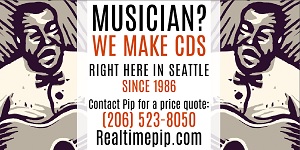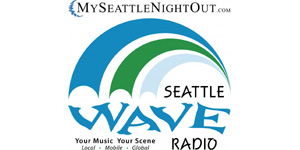
What has been your songwriting journey?
Girls, unrequited love, heartbreak, and misery put me where I am today, lol! Same as many songwriters, I think. Seriously though, I got into music when I was around 10 and I always paid attention to the lyrics, even when I had no idea what they meant. I still do, and still often have no idea what they mean. Sometimes words just have a good flow or sound good together. It’s the same with my own songwriting sometimes.
I first just started writing my feelings about girls when I was around 14 or so. For me, it was pretty much always unrequited so it made for good songwriting fodder. My writing my feelings always took the form of verses. I started on guitar around the same time also, so I tried to put chords to lyrics and vice versa. For me, songs always started with lyrics, because I knew how to speak. Guitar was still pretty hard for me. It still can be. I wrote two or three hundred songs in my teens. I still have all of them. They are awful.
Years later, I realized that writing all those horrible songs was just me learning how to write songs. Once I caught a good one, I knew the difference. Then the good ones started coming more frequently. Then, I was off and running. I still had trouble sometimes figuring out if a song was good or bad (still do now, sometimes), but as the years have gone by, I have built up a body of work of good songs. I have over 100 in my “Good Songs” folder in my computer, and that is probably a little generous. Some of them might not be that great, but I have a lot of good ones. Well over 50.
I’ve written a few different ways, but it almost always starts with a phrase or an idea just popping into my head. I’ve tried a couple of songwriting workshops with prompts and games, and so far I’m completely unsuccessful in that realm. I find some of the SiS song circle critiques helpful and woodshedding with one close friend, Tom Humphreys, who just joined SiS.
I once read an interview with Tom Petty who said he’d be listening to the radio in the car or something and start singing his own words to the song’s melody. Then when he has a guitar he’ll try and figure it out and invariably get it wrong. Then he has his own song. I’ve done that a lot. Keith Richards talks about just having his antenna up to receive them; that they are just floating around in the air and it’s up to us to be open to receive them, like a gift. That makes a lot of sense to me.
I still go long streaks without writing any songs. I can’t really force myself to write a song, but when I start one, I almost always have to finish it in the first sitting. I can go back and edit or revise or rewrite later, but I have this idea that I’ll lose it if I don’t take it when it comes, or that I’ll lose interest in it, so I just sit down and write it. That’s not always a good thing. You have to write lines that you know aren’t very good and you’ll have to go back and change later. I have lines in songs over 20 years old that still irk me. Now, I’m better at going back and finding better lines.
Sometimes I write to the rhyme. I don’t like getting stuck in that because it’s the easy way out and doesn’t always suit the song. I also try to show not tell, but sometimes I end up doing the opposite and have to go back and fix it later. I have a problem with mixed metaphors sometimes too. My friend, Tom, always points those out! I basically want to write an expressive 2.5 – 4 minutes worth of a song that sounds good and makes sense. I use very basic chords and structures. I write bridges, but not often. When I challenge myself to use a funky chord, it usually ends up feeling like I’m forcing it and then my brain just takes me back to 1,4,5 (chords in relation to the key) because it always sounds so good. That’s why it’s so common. I throw in a minor to mix things up when it suits the song. I also have a very limited singing voice and one that’s not the most pleasing to everyone, so that often influences my melodies, keys, and chords.
Most of my songs are about me or people (usually women) that I know. Occasionally, I’ve written fiction, or a factual song about someone else (like Captain Cooke). I’d like to get better at fiction and true story songs about people other than me, but every human life is an endless wealth of song ideas. We’re so multi-faceted and always growing and changing. I still pride myself on not writing too many love or relationship songs. I do write them and have written good ones, but there’s so much to write songs about. I really listen for that also when I listen to other songwriters. I like to hear songs about lots of different subjects.
I have lots of my songs, and another 20 on the way, at www.braintwang.bandcamp.com. All except the ones from Armadillo Borealis (my first band) are home recorded, and all but three of those were recorded by me.
What led you to become a host of an open mic?
This is an easy one. I just started thinking about all the SiS showcases around town. There isn’t one in Ballard and I thought “I could do that!” I knew the venue. Grumpy’s has hosted all my guitar student recitals so I figured they’d be open to hosting the showcases. I started thinking about a time and day that would not conflict with all the other SiS showcases. Also, Grumpy’s schedules shows on Friday and Saturday nights from 7 – 9, so I knew it couldn’t be on one of those nights regardless of clashing with other showcases. I figured this is a good way to get at least one small show in a month and also give songwriters another venue to play in a different part of town (spread ‘em out all over town, ya know) at a very different time and on a different day when people sometimes don’t have much going on.
What have been some of the unexpected benefits of taking on this role?
Meeting and hearing new songwriters, and connecting with them, and making new friends that could always lead to more, like a musical collaboration. It just feels good to be a part of something, a part of the community, part of a group of songwriters. I’ve also become more open minded about other people’s songs and about other music genres. As a guitar teacher, you have to like everything, even though I have historically been pretty narrow minded musically. As I train myself to appreciate more and more music, that appreciation becomes more and more sincere. When hosting songwriters, I want to like everyone’s material, so my appreciation for them and their songs becomes more and more sincere as I “fake it till I make it.” It may not be something I’d put on the stereo at home, but I can really see and appreciate lots more aspects of people’s songs now. It’s the same at a song circle critique. I try to find something positive (and still sincere) to say about every song.
What skills does someone need to become a host?
I think you need to be really welcoming. You need to be able to put people at ease. You can do that by being friendly and organized. I always send out a welcome email a week or so before the show telling them what to expect, when to show up, what equipment Grumpy’s supplies and asking what they need and how many people are performing with them, if any. I try not to talk at all during their set. I sit front and center and listen with eye contact and smiles to let them know they have support in the audience. In my email to them, I ask them to be prepared to stay through the whole show to support all the songwriters. Finally, I’m always early and prepared.
Why might you encourage someone else to give this a try?
It’s fun and you never know what you might get out of it or who you might meet or what connections or friendships you’ll make. We can always use more, good, supportive, and listening venues for songwriters. There are way more songwriters than venues and showcases. The more, the merrier!







Connect With Us!